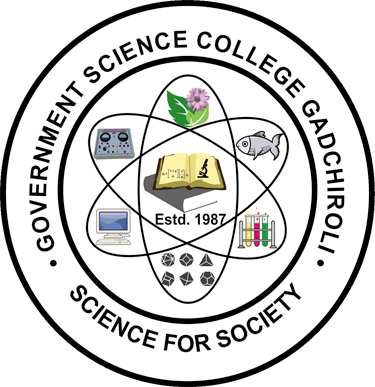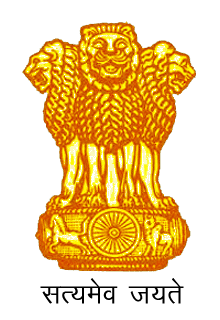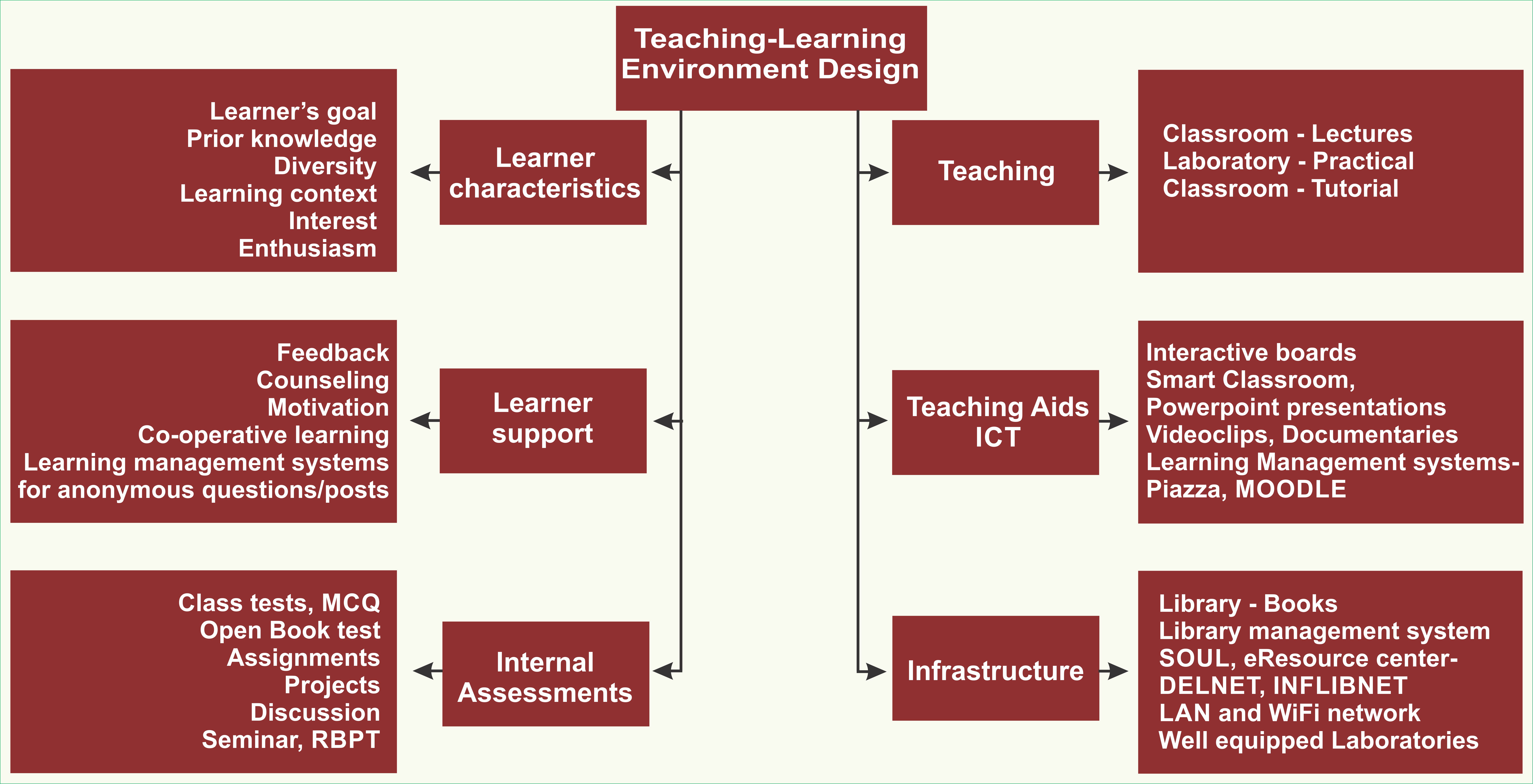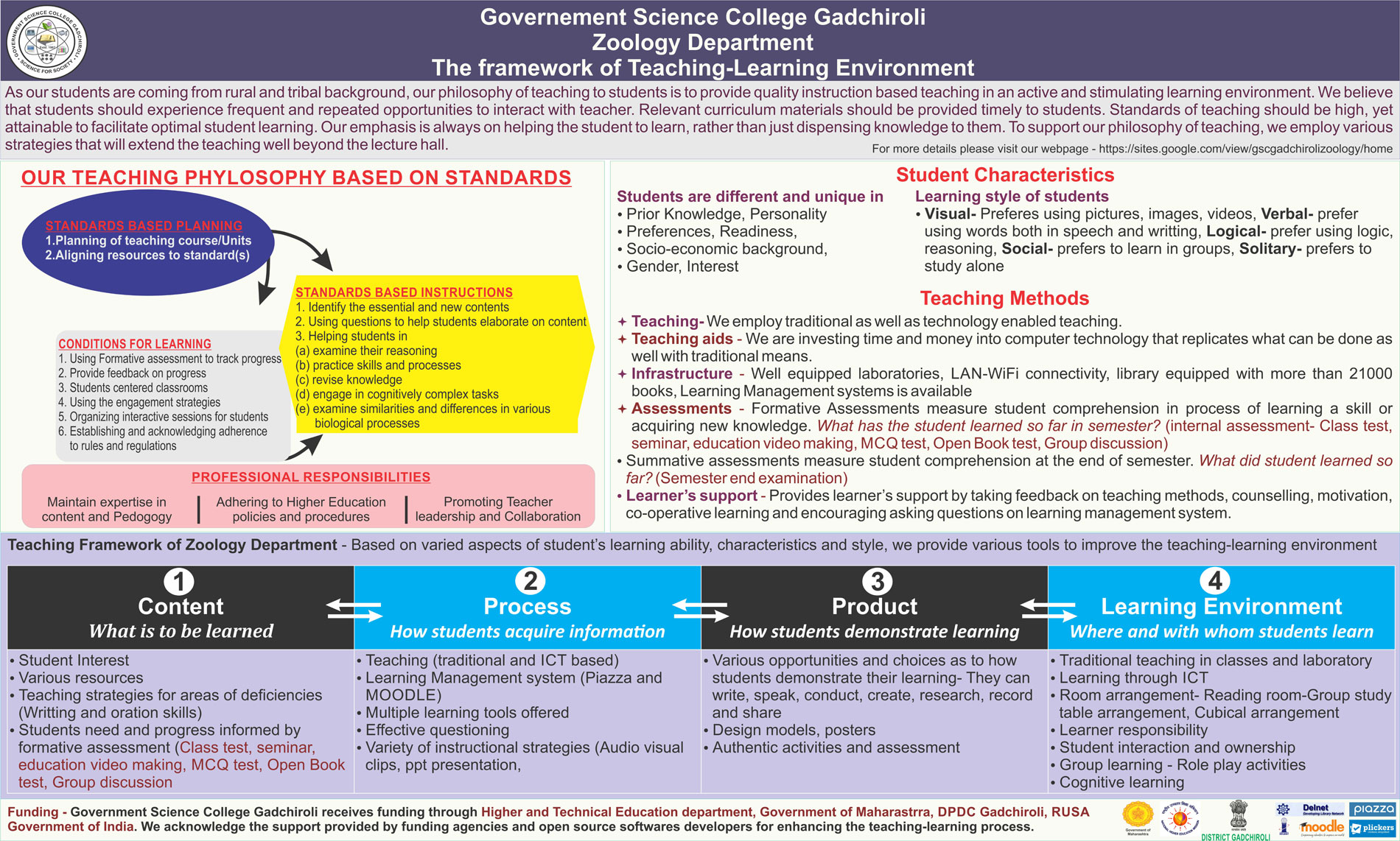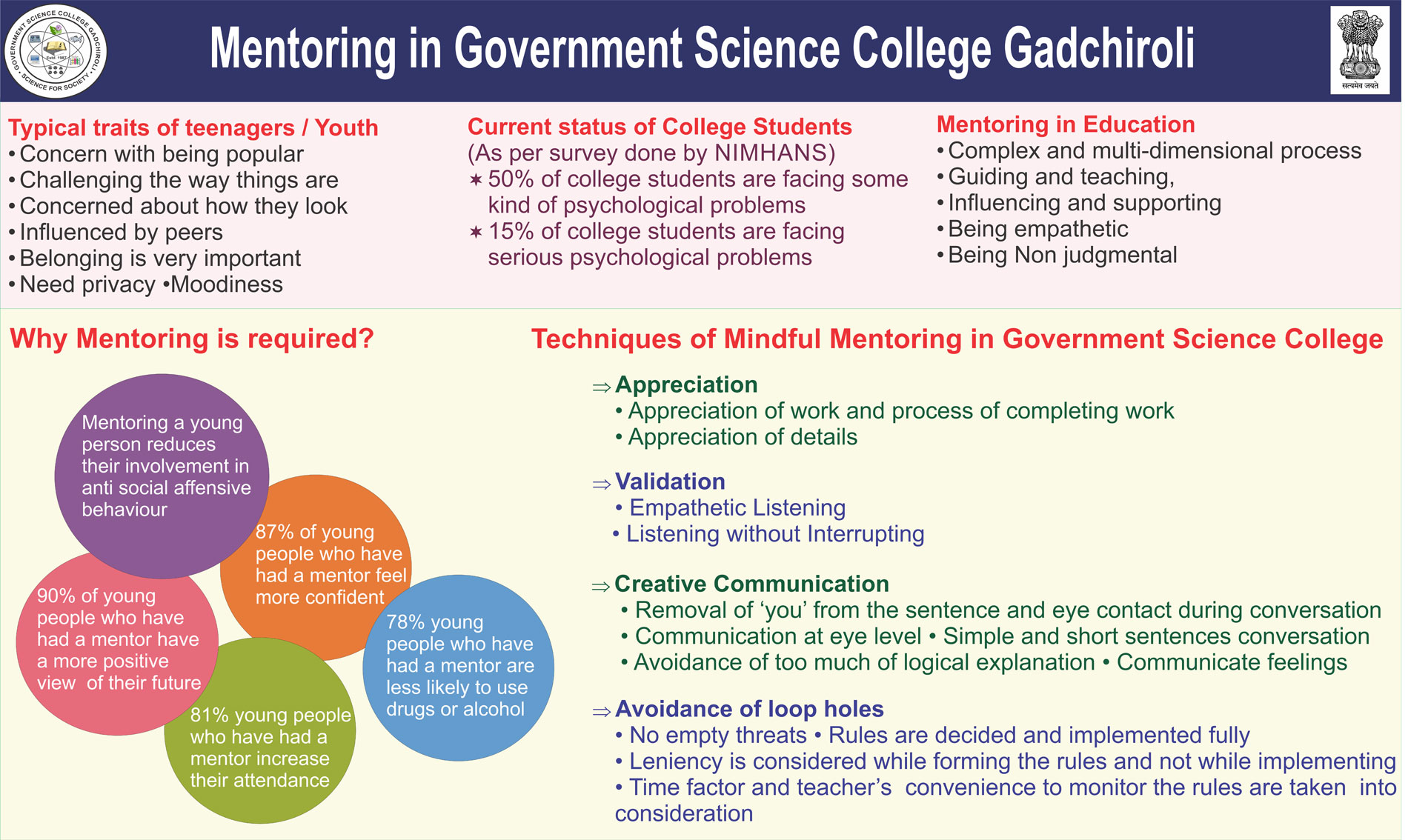Government Science College Gadchiroli focus on classroom teaching competence (either collaboratively or individually). Teaching components are reviewed and based on assessment, components are modified and strengthened. College faculty engage themselves in reflective practice to become better teacher and work towards an ethical ideal as a norm and an evolving cultural expectation.
1.Teaching- learning environment
Teaching and Learning ''meet'' in the teaching and learning environment.
Government Science College Gadchiroli is committed to build a better learning
environment by taking into account both the instructionalist's and the
psychologist's perspectives. We employ following strategies to improve
teaching-learning environment.
LECTURE
Teachers work on effective ways to present new information orally to
include differences in learners. Teachers revise the lesson taught at the
end of lecture. Learners listen to 15-20 minutes of lecture without
taking notes. At the end of that time they spend five minutes recording
all they can recall. Group discussion provocations is carried out for few
topics.
SEMINAR
Topics are assigned to students and student presents the seminar on that
topic. The participant expresses in his or her own words about the
assigned topic. At that point the discussion opens to questions,
comments and conjectures.
VISUAL STUDIES
Seeing something first hand creates a common ground. Photographic essays,
video programs, and personally made video recordings are used for
understanding the concepts and complexities being discussed.
ROLE PLAY
A group of students assigned a topic in particular subject and students
perform the role play.
THOUGHTFUL QUESTIONS
Question are formulated to foster engagement and confidence of students
ACTIVE LEARNING
Fostering co-constructive participation
WRITING IN CLASS
Focus questions, in-class journals, lecture or reading summaries and
in-class essays were used for the learning of the subject matter and
improving writing skills.
PEER TEACHING
By explaining conceptual relationships to others, tutors define their
own understanding.
EXAMINATIONS
By explaining conceptual relationships to others, tutors define their
own understanding.
COOPERATIVE GROUPS
Assigning cooperative challenges to students
DOUBLE LOOP FEEDBACK
Promoting the awareness of how one learns to learn
FOSTERING LEARNER RESPONSIBILITY
Transferring responsibility for discovering, planning and evaluating
learning as much as possible.
